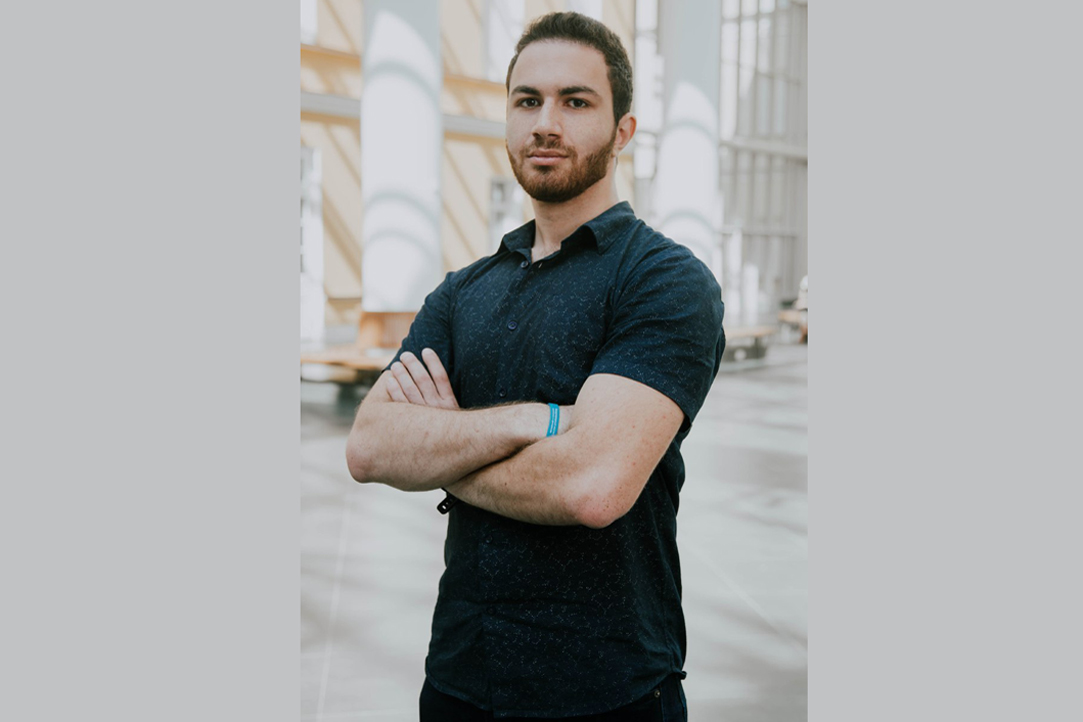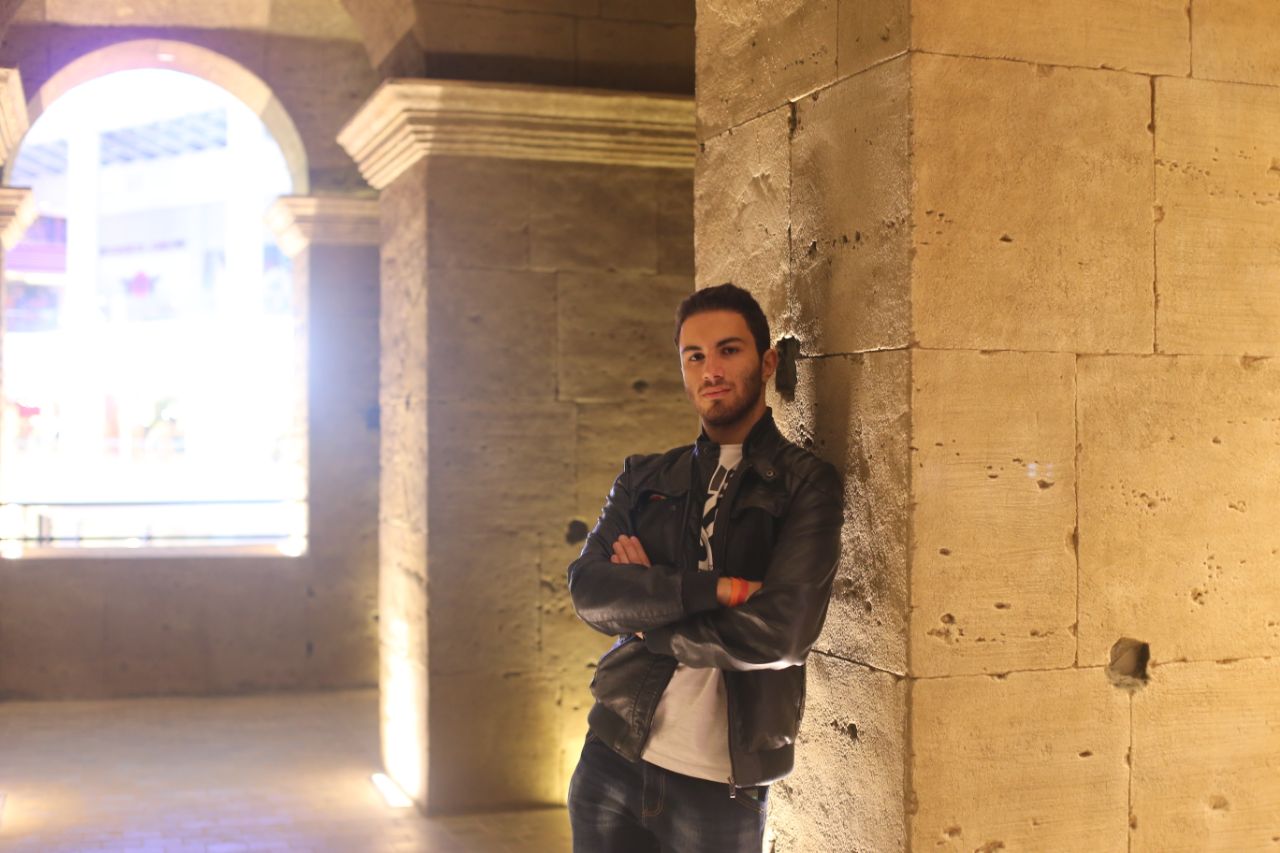ICEF’s Strong Alumni Community Not Myth But Reality

Zhora, your having been an A student and academic contest winner gave you access to any school of your choice. With colleges competing for top students, why did you choose ICEF?
My choice was between economics and mathematics and basically two programmes – ICEF’s and HSE-NES Programme in Economics. ICEF obviously had more factors speaking in its favour. It offered solid training in finance and was spoken very highly of by my school teacher. As a student of Lyceum 31 in Chelyabinsk – named the country’s best math- and physics-focused high school alongside those in Moscow and St. Petersburg – I was very advanced in math and knew that ICEF as a preferred choice among many contest winners, which meant it offered an adequately high level of training. Another thing in ICEF’s favour was the prospect of becoming a better English speaker. I didn’t speak English very well, but my expectation turned out to be true.
Settling into a dorm, new city, new environment sounds tough to many. How did it go for you?
I was staying at my aunt’s initially, two hours away from ICEF. Back then ICEF had its campus based in Shabolovka and I worried I wouldn’t get on time. Had to leave home at 7 a.m. One morning I got to the station to realize I missed my train because I got the times mixed up. For some reason, the first thing that jumped to mind was to walk along the rails as a faster way of getting there than waiting for the next train. I even started walking but after a few steps realized it wasn’t a good idea.
My commute was too long and wearing me down, so six months later I moved into a dorm. Living there turned out a fun experience.
Super-active, overscheduled as I was, I used my dorm only for sleeping.
The most difficult thing part, I think, my insecurity about fitting in. ICEF, HSE’s most expensive school, stuck-up kids and all that. I feared I’d be ridiculed for wearing unbranded clothes. But none of my fears came true. Everyone was nice and communicative, I could feel the difference melt away. That came as a nice surprise.
What was your most challenging learning experience? And most memorable one?
English. I was really having a tough time understanding problem formulations. Like, I read a statistics problem, I see it has two possible solution variants, but I just can’t tell which one to use because can’t I translate it right. One time I even decided to rely on my instinct and I chose right… Yes, I did have difficulty interpreting English at first.
I was a techie who didn’t take humanities seriously as a school student. In my time at ICEF, students were to take one of the two humanities courses – History of World Philosophies or World Intellectual History. I chose Philosophy. Thought it would be completely unintelligible and incomprehensible. It did turn out both, indeed, but I had a really nice time doing that course.
It cultivated in me the knowledge I thought wasn’t worth exploring. I was put to that labyrinth and it was fun exploring it. Had it not been a core course, I would’ve certainly ignored it, but learning world philosophies proved an engaging experience and I still read philosophy sometimes. It’s good that ICEF has this course. I am grateful to it for that experience.
What is the most important thing you gained from your education at ICEF?
The ability to learn. It’s the most important thing of all.
ICEF offers all the benefits of a flexible curriculum. Seems like courses themselves build a learning path for you. They are quick to master and very flexible – thanks to Oleg Zamkov, who has always done a good job of updating the contents based on trends and student feedback. Take, for instance, our digital services platform. It isn’t just an LMS, and actually it does make a difference what platform you are using.
We probably were the first Economics students to have Data Science in our curriculum. And examples of new courses are many. So, I have learned to learn at ICEF, if I may use this tautology to add emphasis.
This ability helped me to catch up and close gaps quickly – especially when I started a job after my second year of study, which involved data analysis and machine learning. I was able to do that job because I was a good self-learner – the skill I learned at ICEF.
Who are the teachers you remember most?
Alla Fridman. A phenomenal teacher. She knows what top students expect from training and was able to keep us engaged us by giving truly challenging problems that required in-depth understanding. Prof. Fridman was our Microeconomics seminar teacher. I remember myself doing those sets of problems and discovering, every time I was through, there was always something else for me to learn even when I though I knew it all. It felt so cool.
And Alexey Akhmetshin. Let me tell you a story about him. It was my first examination session. I was studying hard for the exam I thought was the most difficult one, the History of World Philosophy, right, when at 11 p.m I get an e-mail from Prof. Akhmetshin with his Christmas Quiz on mathematical analysis – a set of advanced problems and the one who solves them first scores the most points.
What I do is put philosophy aside and get down to solving the Christmas Quizz. It wasn’t until three or four hours later that I resumed studying for my philosophy exam.
I think it says a lot about the teaching style at ICEF and how it keeps students engaged. I gave up on preparing for that tough exam because something much more interesting came up. I passed that exam with a good grade, by the way.

And it also indicates that you really enjoyed studying. Now as a data product manager at Tinkoff, you also work as part of its training team as your non-core activity.
True, I was among the people involved in launching the Tinkoff academy. I really enjoy lecturing to school students on topics covering theoretical aspects and career strategies. One of my talks is entitled “Economics Students’ Path to Tinkoff.”
There was one data analysis contest we conducted which involved a series of hackathons and where I chaired the instructors panel. One of those hackathons offered a problem which appeared a hard job for the competing teams. At some point I realized it was so because students simply didn’t know yet how to deal with statistical tests. I began to explain it to one team and soon had people from other teams listening too. It was a nice experience instructing those student teams.
ICEF’s strong alumni community is not a myth but a reality. Do you keep in touch with many of your classmates or former graduates? Are any of them your current partners?
Some are. I think some six or seven people from ICEF got jobs at Tinkoff using me as a connection. My team has two ICEF graduates. Even if the only thing you know about a candidate is that they are an ICEF graduate, it’s enough to help them get onboard. And this also runs the other way, of course, which is great.
There’s a number of professional communities I can always turn to for advice. When Oleg Tinkoff was selling his bank, one of the people on the buyer’s side was my classmate. It was a curious experience for both of us exchanging advice, and we are still in touch. He has me as his contact to the world of finance, while I can benefit from his connections in IT.
Examples like this are many. This community works as a distributed network.
What advice would you give your student self?
Maybe wait a bit with my decision to start a job. I started it in the end of my sophomore year and I think it was a bit early. Once I got myself on track with studying in year one, year two went fine, I decided to embark on extra things – ICEF Evening School, courses, and ultimately job. I was putting in a lot of effort, which was good, but I’m still not sure it was a wise decision.
I joined Tinkoff after my second-year examination session. The agreement was that I would stay on a 40-hour week during the summer and put in 30 hours when studies resume. But I still worked 40. I was juggling those work hours and school schedule.
Are there any books, other than economics, you can recommend students to read?
I didn’t really like literature as a school student. I knew how to write an A essay and never read the book. But now I understand how much I missed and am slowly catching up.
I think it’s really worth re-reading the books we read for school. Simply because our perception changes over time. Reading a good book is like a conversation with the finest minds.
I would recommend everyone to read Prince Felix Yusupov’s biography. It will have you rethinking current events.
What are your passions, if I may ask?
I enjoy working with my own hands. I often embark on a DIY adventure thinking I’d have it done within two hours, but I end up working for two weeks, fastening and soldering things together – and the longer I work, the more difficult it gets.
I’m an experimenter by nature. Last Sunday I took my first winter driving lesson. A thrilling drift session it turned out.